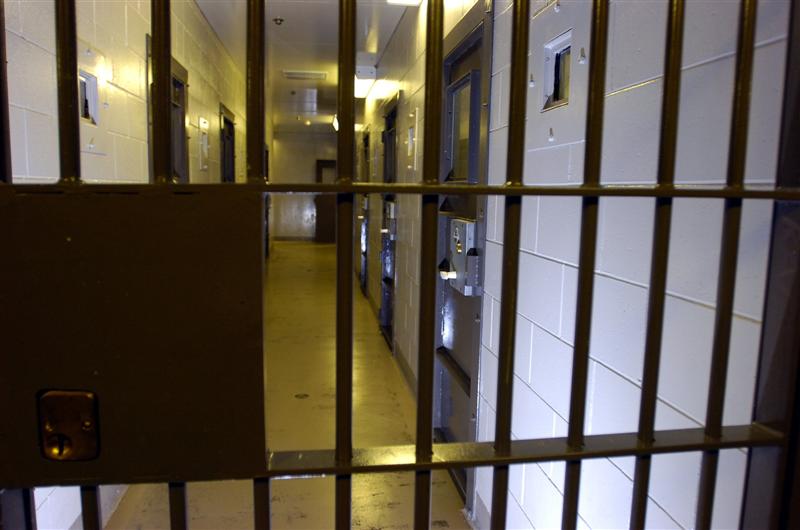
There has been a surge in prison suicides and attempted suicides by inmates over the months in which Corrections struggled to contain a ballooning prison population.
It has raised concerns that the unforeseen blowout in prison muster numbers after years of "tough on crime" policies is extracting a human cost beyond that elsewhere in our communities.
The new data comes as Minister of Justice Andrew Little prepares to ask Cabinet to back the removal of the Three Strikes law, leading to National reviving its "tough on crime" call and a promise to bring back the law if it's scrapped.
It follows recent research from the Prime Minister's chief science adviser Sir Peter Gluckman showing "tough on crime" policies had an effect opposite to what was intended by creating increasingly damaged, hardened criminals who were a risk to society.
Details of the suicides and attempted suicides, revealed through the Official Information Act, show one suicide occurred in 18 months from March 2016.
There were then six suicides in the next six months.
Over that same time period, there were 20 suicide attempts in the first 18 months and then 19 in the next six months.
Of those, eight were female prisoners even though women form just 7.4 per cent of the prison population.

The prison population grew from 9273 prisoners in March 2016 to 10,712 at the beginning of March this year. The rapid rise forced Corrections to expand capacity by introducing double-bunking across the network and reopening old prison units.
Minister of Corrections Kelvin Davis said: "Any unnatural death is one too many."
However he said it would be "irresponsible" to link the prison population to suicide numbers because inmates had "higher rates of poor mental health and addiction issues, and are more likely to have experienced abuse and neglect than the general population".
"These issues are often aggravated by poverty, poor education and health outcomes, unemployment and a lack of housing. Corrections is often the last stop for many of these people."
He said Corrections had launched a new mental health strategy and was currently introducing a new approached to managing prisoners contemplating self-harm.
Chief Ombudsman Peter Boshier said his office received incident reports on each death in custody and was working with Corrections and the Ministry of Health to address mental health issues in prison.
"We are keeping a close eye on incidents of self-harm and suicide in the prison system."
A Corrections spokeswoman said the data was too small to form a trend and suicide statistics varied wildly, with one death in the previous financial year and 11 the year before that.
The prison population had grown 23% in five years.
"There will always be a degree of correlation between the number of such incidents and the size of the total prison population."
She said 62% of prisoners had some form of mental health or substance abuse issue in the past 12 months and 91% had a lifetime diagnosis. There were new programmes under way to address these issues.
Barrister Moira Macnab, who has acted for families of suicide victims at inquests, said the data showed "a strong correlation between the number of suicides and changes in management of overcrowding".
She said deaths in custody created "heightened right to a very thorough inquiry" including management decisions around crowding control and psychological support for prisoners.
"It is relevant that we take someone with often-known mental health issues and place them in a place where we know, or ought to know, that they are unlikely to be able to provide the level of care their health status requires."
University of Auckland professor Tracey McIntosh said suicide in prison amid increased crowding raised questions of judges who sent people there.
"As a society, do we think the best place to put people with high levels of mental health issues and unwellness is into a large, anti-therapeutic environment?"
Victoria University criminologist Dr Liam Martin cautioned against concrete conclusions from the data because of the small time frame but "the up-tick is clear".
He said prison had much higher rates of suicide because of mental health issues, social isolation and violence - and was known to be exacerbated by crowding.
Sociologist Ti Lamusse, who read 110 coronial reports before writing an award-winning Masters' thesis on death in prison, said prison was a high-stress environment.
"We know putting people into harsh conditions in prison makes them more likely to hurt others when they get out of prison. For the sake of society, it doesn't make sense to treat people in prisons without dignity."
Where to get help:
• Lifeline: 0800 543 354 (available 24/7)
• Suicide Crisis Helpline: 0508 828 865 (0508 TAUTOKO) (available 24/7)
• Youthline: 0800 376 633
• Kidsline: 0800 543 754 (available 24/7)
• Whatsup: 0800 942 8787 (1pm to 11pm)
• Depression helpline: 0800 111 757 (available 24/7)
If it is an emergency and you feel like you or someone else is at risk, call 111.












